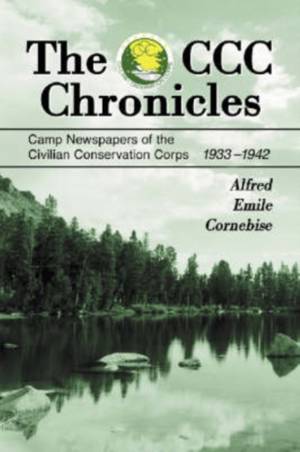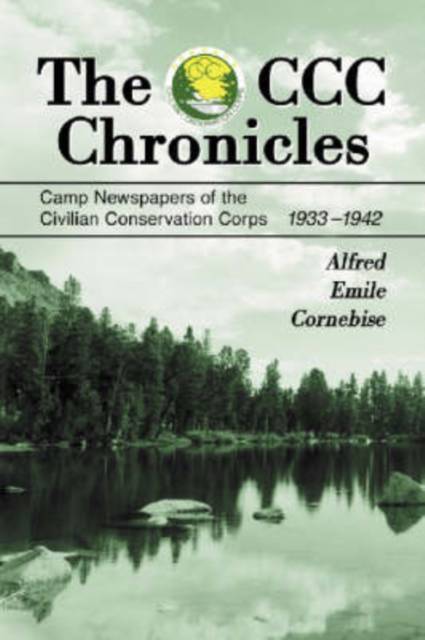
- Retrait gratuit dans votre magasin Club
- 7.000.000 titres dans notre catalogue
- Payer en toute sécurité
- Toujours un magasin près de chez vous
- Retrait gratuit dans votre magasin Club
- 7.000.000 titres dans notre catalogue
- Payer en toute sécurité
- Toujours un magasin près de chez vous
The CCC Chronicles
Camp Newspapers of the Civilian Conservation Corps, 1933-1942
Alfred Emile CornebiseDescription
When Franklin Delano Roosevelt founded the Civilian Conservation Corps in 1933, newspapers relating to the organization were launched almost immediately. Happy Days, the semi-official newspaper of the CCC, and other such publications served as soundings boards for opinions among the CCC enrollees, encouraged and instructed the men as they assumed their new roles, and generally supported the aims of Roosevelt's New Deal program. Happy Days also encouraged and instructed editors in the production of camp newspapers--well over 5,000 were published by almost 3,000 of the CCC companies from 1933 to 1942.
This book considers all phases of life in the CCC throughout its existence from various perspectives, and analyzes the history of CCC camp journalism. As the author points out, the CCC newspapers were and still are significant because they provide readers with a look at American life--socially, politically, culturally and militarily--during the Great Depression. It also focuses on how Happy Days and other newspapers were created and distributed, who wrote for them, and what they contained.
Spécifications
Parties prenantes
- Auteur(s) :
- Editeur:
Contenu
- Nombre de pages :
- 286
- Langue:
- Anglais
Caractéristiques
- EAN:
- 9780786418312
- Date de parution :
- 16-04-04
- Format:
- Livre broché
- Format numérique:
- Trade paperback (VS)
- Dimensions :
- 151 mm x 230 mm
- Poids :
- 421 g







